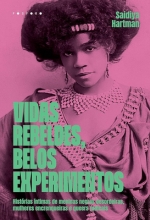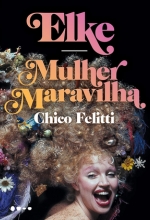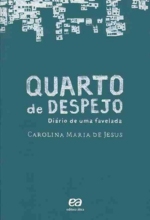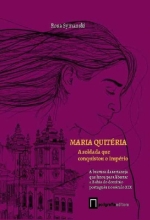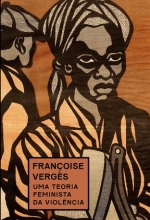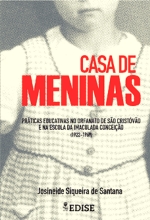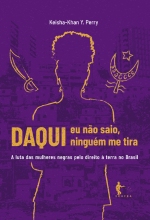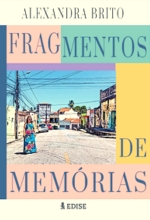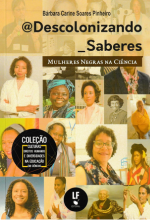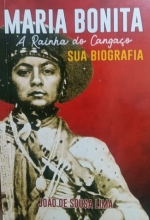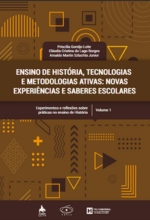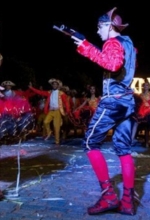Abstract: Vidas Rebeldes, Belos Experimentos: Histórias íntimas de meninas negras desordeiras, mulheres encrenqueiras e queers radicais, by Saidiya Hartman, explores intimate stories of black girls and radical queers, using the critical fabulation method. The goal is to rescue marginalized memories and historical characters, although the explanation of the method is briefly, potentially confusing new readers. […]
Abstract: Elke: Mulher maravilha, by Chico Felitti, tells events of Elke Grünupp’s life, a Brazilian artist, born in Germany, highlighted by anarchist attitudes and criticism of the status quo. Surrounding reading and example of criticism of sources and authorial positioning, the book sins by the dominant chronological linearity in the composition. Keywords: Wonder, woman, and
Resumo: Quarto de despejo: diário de uma favelada, de Carolina Maria de Jesus, expõe a realidade de uma favela em São Paulo nas décadas de 1950 e 1960. O diário ilustra a luta diária de Carolina como mãe solo e catadora de papel, abordando questões de pobreza, racismo e desigualdade social. A obra, ainda relevante
Abstract: Maria Quitéria: A Soldada que Conquistou o Império”, by Rosa Symanski, seeks to illustrate the life of Maria Quiteria as a woman and warrior. The work mixes fictional narrative with historical facts, but faces criticism for the lack of clarity between fiction and reality and the scarcity of post-independence details. Keywords: Maria Quiteria, biography,
Abstract: Uma teoria feminista da violência, written by Françoise Vergès, explores decolonial feminism and criticizes white-bourgeois feminism. The work emphasizes the inequalities faced by racialized women and the importance of inclusive public policies. It stands out for its criticism of state violence and the call to combat systemic violence. Keywords: Feminist Theory, violence, and decolonial
Abstract: Casa de Meninas: práticas educativas no Orfanato de São Cristóvão e na Escola Imaculada da Conceição, by Josineide Siqueira de Santana, analyzes female education in Sergipe in the twentieth century. The work, the result of the author’s master’s degree, explores the restrictions and influences of the Catholic Church on women’s education, highlighting the limitation
Abstract: Daqui em não saio, daqui ninguém me tira, by Keisha-Khan Y. Perry, released in 2022 by EDUFBA, is an ethnography about the politics of black women in Brazil. The work aims to discuss sexist and diaspora racism, highlighting the struggle of these women for the right to land. Positively criticized, it reveals the intersection
Abstract: “Fragmentos de memória” by Alexandra Brito, published in 2021, is an autobiography focused on the author’s childhood, exploring striking memories with sensitivity and simplicity. Although it offers a multifaceted view of Brito’s life, the work is criticized by informative gaps and excessive use of reticence, which can make it difficult to understand and engage
Resumo: Em @Descolonizando_saberes: mulheres negras na Ciência, Bárbara Carine Soares Pinheiro seeks to publicize the production of black women in biomedical, mathematical and technological sciences. The work faces criticism for focusing more on African-American scientists, despite emphasizing the relevance of African knowledge and the fight against academic racism and sexism.” Keywords: Black women, science, and
Summary: The work Maria Bonita, a rainha do cangaço: sua biografia, written by João de Souza Lima and released in 2022, explores the life of Maria Gomes de Oliveira (Maria Bonita). Based on field research and interviews, it seeks to trace Maria’s profile since childhood, covering her entry into the cangaço and her relationship with
Abstract: In this review article, we describe and comment on some classic texts on the history of women in Brazil, especially among historians. Next, we comment on the rarity of bibliography regarding the history of indigenous women and point out some paths that this historiography can follow. Keywords: Women’s History, History of Indigenous Women, and
Abstract: A música no candomblé: etnomusicologia no Ilê Axé Opô Aganjú, Bahia, by Angela Luhning, investigates the musical elements in the candomblé terreiro Ilê Axé Opô Aganjú, in Bahia. The work, which is of primary relevance due to its pioneering detailed musical analysis and historical contextualization, also reproduces information that is now relativized or questioned.
Abstract: Ensino de história, tecnologias e metodologias ativas: novas experiências e saberes escolares, organized by Priscilla Leite, Cláudia Borges and Arnaldo Szlachta Júnior in 2022, explores the use of technologies in history teaching. It is aimed at educators, discussing the integration of electronic devices in history education. Critically, the book lacks a deeper contextualization and practical
Quadrilha Presentation in Euclides da Cunha [2021] | Image: Euclides da Cunha City Hall Abstract: This review article analyzes popular sertanejo culture, focusing on June festivals and cordel literature in the Brazilian Northeast (2018-2022). It uses an interdisciplinary approach to explore the cultural identity, space and territorialities of the sertão, suggesting future research to better

